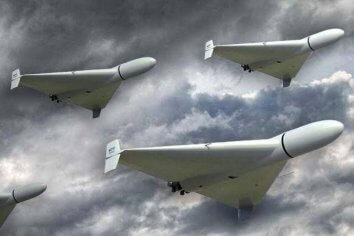The last three months have seen some changes in Belarusian politics, or rather signs of a shift. Some decisions by the Belarusian ruler came as a surprise to observers, as no obvious cause was immediately apparent.

Shift to East to spite West
Over the past four years, Alaksandar Łukašenka has been on the path to establish a totalitarian system, by silencing the opposition through repression comparable with Josef Stalin’s terror.
Minsk declared the West an existential enemy and focused on rapprochement with Russia, China, and the Global South, as well as non-Western economic and political blocs.
That shift represented not only a change of strategy but also a significant departure from European civilization.
Minsk has fully supported Moscow in its conflict with Ukraine. It has joined the Kremlin in labeling the Ukrainian government as Nazis and proclaiming the need to reunite Ukraine with the great Slavic family.
However, despite the declared determination to continue with this policy, Minsk has made decisions that are seen by observers as overtures to the West.
Dissidents released
Since July, Łukašenka has pardoned 115 political prisoners, while his crackdown on dissent continues unabated.
Instead of presenting the move as part of a broader amnesty program, official press statements trumpeted the Belarusian ruler’s humanism, stressing that those pardoned had been convicted of protest-related crimes.
Authorities released the prisoners over a three-month period to make a bigger splash.
Łukašenka also seems open to negotiations on the release of prominent inmates, such as Polish minority leader Andrzej Poczobut and US lawyer Juryj Ziankovič. Minsk has ostentatiously invited Warsaw and Washington to bargain.
There was also a subtle change in Minsk’s rhetoric on Ukraine. Łukašenka has persistently called for peace talks in the last couple of months and made it clear on quite a few occasions that he was in close contact with Kyiv.
Other signals to the West included Minsk’s talk about readiness to discuss ways to deal with illegal migration via Belarus to the European Union.
Łukašenka’s insecurities
Why would the Belarusian leader try to engage with the West when he seems to be doing great: the economy is booming; people have been frightened into submission; threats have been blunted; and Łukašenka’s re-election seems to be assured in 2025?
The status quo does not satisfy the ruler because of his psychological trauma associated with the 2020 anti-government protests. Łukašenka must be worried about the upcoming presidential poll.
He fears that his conventional approaches to deterring the opposition may be ineffective and seeks fool-proof security guarantees.
Officials have recognized that the brutal suppression of protests has caused much financial and reputational damage to the country.
The shortage of labor as a result of emigration and the growing number of pensioners are among the major challenges for the Belarusian economy.
Russia’s military-industrial complex drives Belarus’ economic growth, but what happens when the war is over?
The spat with the West takes its toll. Sanctions have already reduced cargo flows by 30%; transit through Belarus has been affected; and China is not happy about the closures of border crossings for its goods.
Disagreements with Kremlin
Łukašenka’s relationship with Russia is complicated as well. Moscow’s effort to consolidate Belarus as a vassal buffer state is a source of tension in Minsk, especially amid uncertainty surrounding the war. There are signs that the Belarusian strongman may have disagreements with the Kremlin.
In his speech on September 17, National Unity Day, Łukašenka, in addition to blaming Ukraine and the United States, suggested that “external forces” may be contributing to tension between Belarus and Ukraine. He did not specify which, but it was clear from the context that he was not referring to the United States.
Łukašenka said that “if anyone attacks Belarus, it will be the start of World War III.” He mentioned Ukrainians, Americans and Russians as the possible attackers.
When tension with Moscow rises, Minsk often makes overtures to the West. We may be witnessing it now.
Łukašenka needs a boost of political agency
Łukašenka may be looking for a counterweight to Moscow to have more room for maneuver. His goal is to force the West to accept him as de-facto leader of Belarus and move on from 2020.
He hopes to participate in future peace talks on Ukraine and wants Western countries to recognize him as president after the 2025 election.
Since political prisoners are the West’s top concern in Belarus, he has made small concessions in the area, possibly before moving on to negotiations on migrants and sanctions.
